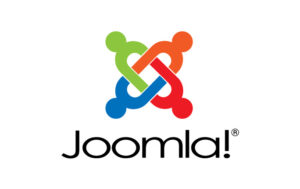Microsoft 365 vs Google Workspace? This is a question everyone has been asking for a while!
During the 90s and early 2000s, Microsoft Office was practically the only player dominating the enterprise technology sector. Then one day, Google arrived with its Docs and Sheets, making it a real alternative for most businesses.
Since then, both platforms have rebranded and improved their overall offerings in terms of applications and user-friendliness. As a result, choosing between Microsoft 365 vs Google Workspace (formerly G Suite) has become a more challenging exercise!
Choosing the right platform to manage your team and boost productivity will actually depend on your work preferences. Google Workspace (G Suite) and Microsoft 365 both offer excellent cloud-based tools and offline applications. However, their features may be limited in some cases, making it essential to determine your needs first.
In this article, we will compare Microsoft 365 vs Google WorkSpace (formerly G Suite) to help you decide which one would be better suited for your professional or personal use.
Note: our article will focus on outlining the similarities and differences between the two offers, in general. Another article will soon be available on our blog, and it will deal more specifically with each of the two solutions.
Microsoft 365 vs Google Workspace: Two Equally Valid Solutions
A detailed comparison of these two online services will certainly reveal many differences. But, let us tell you that Microsoft 365 and Google WorkSpace are generally equipped with similar features, such as :
- Cloud storage and file-sharing options;
- A selection of business applications;
- Collaboration tools such as chat or audio and video calls;
- Business email, which you can set up with your custom domain;
- And much more...
Let's compare them in more detail.
Microsoft 365 vs Google Workspace: Quick Comparison
Google Workspace (formerly G Suite)
Google Workspace (G Suite) offers 30 GB of unlimited cloud storage and powerful file-sharing capabilities. You can collaborate on documents in real-time, or make your projects available offline if you prefer.
This virtual workspace also comes with all the popular Google applications you may already be using, such as:
- Gmail;
- Google Docs, Sheets and Slides;
- Google Calendar;
- You also have access to Google Sites, making it easy to create team websites with its drag-and-drop feature and intuitive interface.
Google Workspace (formerly G Suite) enhances team collaboration with Chat and Google Meet for messaging and video conferencing. You'll also have robust security options to ensure your most critical tasks are secure across all applications.
Thanks to its cloud technology, Google Workspace (G Suite) is perfect for remote teams, as it facilitates online cooperation. Users can work simultaneously on files, leave comments, and make suggestions. Additionally, Calendar and Keep functions make creating tasks and shareable calendars easy.
You can also check out our blog post: G Suite becomes Google Workspace: 5 things to know
Microsoft 365
Microsoft 365 offers a generous 1 TB of storage space for all plans, although none of them include an unlimited option. You also get an additional 50 GB for a mailbox for each user.
Easily manage and share your files via OneDrive. However, Microsoft 365's web applications aren't as robust as their desktop versions. On the other hand, all of its offline tools are highly compatible with Windows, making integration easy if your business already relies on Windows.
You'll have access to popular, feature-rich applications like:
- Microsoft Word, Excel and Powerpoint;
- Outlook;
- OneNote;
- Publisher and Access (PC only).
Microsoft 365 also has excellent collaboration tools like Microsoft Teams, which allows users to seamlessly switch from chat to video conferencing. You can also share files, edit them in real-time, and leave comments and suggestions.
Lastly, Microsoft 365 provides advanced security features. The Business Premium offer includes sophisticated protection against threats and malware, access control, Windows Defender, and more.
Microsoft 365 vs Google Workspace: Ease of Use
Google Workspace (G Suite) and Microsoft 365 are both familiar to most people, making them easy to use. The choice between them will depend more on personal preferences and workflow.
For example, if you are already accustomed to working with Microsoft or prefer working with "desktop" tools, then Microsoft 365 might be the better investment. Its applications integrate seamlessly with each other, especially if you rely on Windows. However, beginners may need to familiarize themselves with its many features first.
On the other hand, the interface of Google Workspace (G Suite) is very intuitive and extremely easy to navigate, even for the most novice users and those not well-versed in web technology.
There are useful behind-the-scenes features, like autosave, which make the platform beginner-friendly. It's also designed for cloud collaboration, meaning it will likely be easier to use if your team members are working remotely.
Microsoft 365 vs Google Workspace: Customization
Both platforms allow you to create custom email addresses for your business. You'll first need to purchase a domain (or use your existing one) and connect it through a fairly intuitive setup wizard.
You can also get one of NindoHost's technicians to help you configure your Microsoft 365 or Google Workspace business email.
Google Workspace (G Suite) comes with Gmail for Business, meaning you'll use the same Gmail interface you're probably already familiar with (but without any ads). In contrast, Microsoft 365 for Business features Outlook, a well-known desktop client. Both applications also provide access to robust calendar and scheduling options.
Microsoft 365 vs Google Workspace: Pricing
Google Workspace (G Suite) starts at $6/user/month for the basic plan, giving you 30 GB of storage. Pricier plans come with unlimited storage or 2 TB if shared with fewer than five users. The Business offer starts at $12 per user per month.
Microsoft 365 Business Basic costs $6/user/month with an annual commitment. However, this plan only offers web-based Office applications with limited features. It also doesn't support professional email.
To add support for business email and desktop versions of Office applications, you can choose the Business Standard plan at $12.50/user/month. There's also a Premium version at $20/user/month that adds protection against cyber threats and device management.
Microsoft 365 vs Google Workspace: Which is best for your business?
Google Workspace (G Suite) and Microsoft 365 are both excellent business suites that will undoubtedly boost your team's productivity. They allow you to work remotely and/or locally, collaborate with others, and store and manage your files.
However, they may not suit all types of businesses. In particular, larger businesses might be better off with Microsoft 365 due to its advanced security and feature-rich options tailored for large enterprises. On the other hand, Microsoft Office 365 may not be ideal if your operations are entirely remote.
Google Workspace (G Suite) offers a wide range of applications with robust features to facilitate real-time collaboration on files. Small businesses, in particular, will find these applications helpful as they allow for easy setup and management of user accounts (while being slightly more budget-friendly).
Your team is probably already familiar with popular tools like Gmail and Google Docs, which is a plus for integrating new members. Unfortunately, Google Workspace (G Suite) doesn't have a wide range of desktop applications. Nonetheless, this shouldn't be a barrier if your employees are location-independent.
Microsoft 365 vs Google Workspace: Conclusion
Choosing the right collaboration platform can significantly improve your team's productivity. Nowadays, it's essential to be able to work remotely, exchange files, and communicate through chat and video conferencing applications. Google Workspace (G Suite) and Microsoft 365 both offer these options, but there are still some crucial differences.
As a final verdict, we can say that Google Workspace (G Suite) is better suited (or even recommended) for small businesses that primarily operate online. Its real-time file editing capabilities are unbeatable. Its intuitive and clean design will be simple for most users.
In contrast, larger businesses accustomed to working with Microsoft's desktop applications will likely be better served by Microsoft 365.
Do you have any additions or questions about Microsoft 365 vs Google WorkSpace? Let us know in the comments section below!



